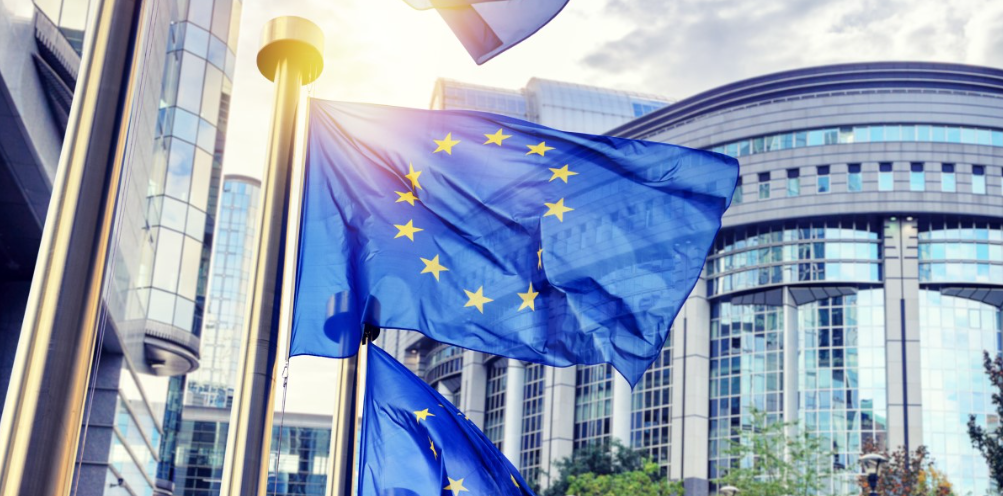 Add My Company
Add My Company

The proposed EU Supply Chain Act has been subject to delays, but the act (or something like it) is destined to become law sooner or later. What preparations should OEMs make to ensure their supply chain can withstand the scrutiny the act will bring in its wake?
EU member states pull back from approving the Supply Chain Act
In dramatic scenes at the European Parliament in February 2024, the latest attempts to agree passage of the European Supply Chain Act encountered significant obstacles when Germany and Italy decided to abstain from voting on the proposed law. But why?
What is the European Supply Chain Act?
The European Supply Chain Act, is a proposed piece of EU legislation currently in draft form and referred to as the Directive on Corporate Sustainability Due Diligence (or the CS3D). It includes several major provisions to enhance corporate accountability and sustainability in supply chains.
As the name of the directive suggests, it substantially increases the amount of due diligence required by businesses to ensure their partners are compliant with all relevant human rights and environmental legislation. It also introduces personal liability for business owners when compliance breaches are found across their supply chain.
Here are some critical elements of the act:
1. Coverage: The law applies directly to all EU and non-EU "large companies" selling goods and services on the EU market, defined as companies with more than 500 employees or a turnover exceeding 40 million euros.
2. Compliance obligations: Companies are required to audit their suppliers along the entire global supply chain, including all direct and indirect business relationships, to ensure compliance with human rights standards and environmental protections.
3. Liability: The law includes a civil liability clause, allowing affected parties to sue companies for damages in European courts if human rights or environmental standards are violated.
4. Enforcement: Companies must respect human rights in their supply chains and can be exempt from liability if they have codes of conduct with trading partners and ensure compliance
5. Support measures: The law includes support measures to assist small and medium-sized enterprises (SMEs) comply with the requirements, such as subsidies and state aid.
6. Environmental impact: Companies will be obliged to address and minimise environmental impact and human rights abuses across their subsidiaries, develop prevention action plans, and verify compliance with agreed-upon measures.
7. Implementation timeline: Once approved, EU member states will have two years to transpose the Directive into their national laws, with implementation expected by early 2026
8. Paris agreement: If annual turnover exceeds 150 million euros, companies must align their internal policies with the Paris Agreement’s goal of limiting the planet’s warming to 1.5 degrees Celsius.
These provisions aim to promote sustainability, protect human rights, and ensure responsible business practices throughout global supply chains within the EU.
Why did the legislation stall at the latest approval stage?
Germany's abstention, influenced by the Free Democratic Party's (FDP) concerns over the law imposing "unreasonable bureaucratic hurdles," alongside Italy's last-minute decision to abstain, stalled the decision-making process.
Watchdogs have been alarmed by the backsliding on the legislation, and there is now a real possibility that the act will be watered down - or simply won’t make it into law by the time of the next EU elections.
The direction of travel remains the same
But while the legislation may change, the direction of travel for the world, in terms of manufacturing regulation, is likely to remain the same.
This legislation (or something like it) will become a necessity, domestically and internationally, to protect growth and prosperity.
The supply chain has many bear traps for global prosperity
The current global supply chain of critical raw materials (CRM) can be a complex network of shadowy dependencies. It’s often characterised by geo-political risk, environmental and labour exploitation.
As instability in supply chain security persists, the West needs to free itself from reliance on unpredictable players (like China) and the dark, polluting processes of mineral extraction and labour common in many parts of the world.
These kinds of relationships are driving so many dangerous and divisive trends across the globe, including war, climate change and mass migration - that they have become unviable as models for growth. Sustainable global prosperity depends on finding alternatives to these ways of working.
Ensuring supply chain sustainability
The European Think Tank, Bruegel lists some of the ways companies and governments should be shifting investment and production to ensure they have more control of their carbon and ethical footprint:
- Boosting domestic mining, refining, and recycling of Critical Raw Materials (CRM) within the EU to reduce dependency on imports.
- Encouraging investment in CRM-rich countries to ensure a steady supply while promoting sustainable practices.
- Implementing policies to enhance the recyclability of raw materials, reducing waste and promoting circular economy principles.
- Supporting research and development in alternative materials and technologies that can reduce the reliance on CRM.
Legislation like the EU Supply Chain Act will become increasingly necessary to safeguard global peace and prosperity. The current EU directive may not pass into EU law to the expected timetable, but other legislation will undoubtedly come to fill the gap on a local, if not international level.
Conclusion
OEMs should ensure their EMS partners have the policies and process in place to demonstrate the sustainability of their supply chains and the ethical provenance of their CRMs.
The right partners will be agile and transparent in their supply chain management. They will be committed to cutting-edge, sustainable practices that will keep them (and you) at the forefront of an ethical, compliant and circular economy.
For more information on The EU supply chain act is coming (eventually) are you ready? talk to ESCATEC Mechatronics Ltd

